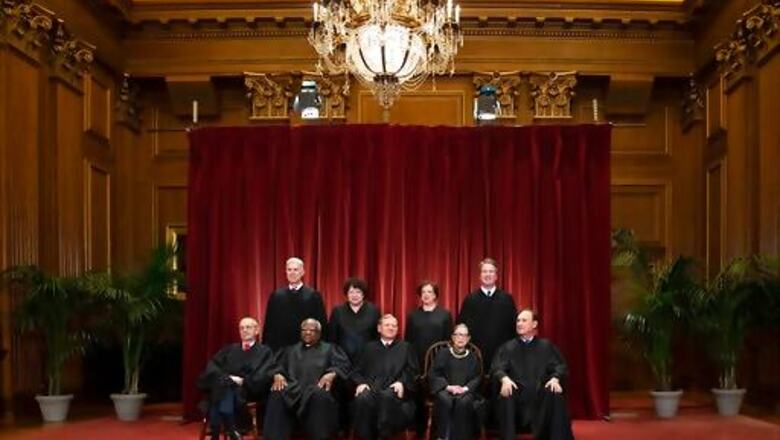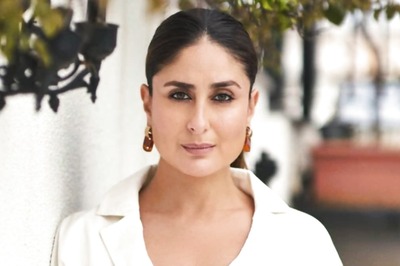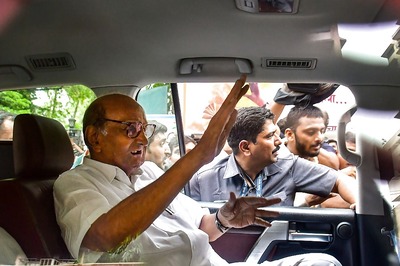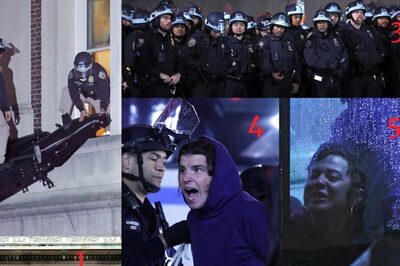
views
WASHINGTON: A flurry of election-related cases are already working their way through courts, but Supreme Court Justice Stephen Breyer doesn’t seem overly concerned about election cases landing in his lap.
We don’t know the cases will come to us. We’ve learned it’s best, and I’ve learned over time, deal with the case when it comes up, don’t deal with it on the basis of what’s said in a newspaper, Breyer said during a conversation Thursday arranged by George Washington University and streamed on Facebook.
Breyer, a member of the court that decided the Bush v. Gore case essentially settling the disputed 2000 presidential election in favor of Republican George W. Bush, spoke from a bedroom in his home in Cambridge, Massachusetts. And, yes, the bed was made. But when Breyer and his colleagues resume hearing arguments in October, the public won’t be able to see them.
The court announced Wednesday that it will start its new term next month the way it ended the last one, with arguments by telephone and live audio available to the public because of the coronavirus pandemic.
Breyer on Thursday explained the reason for doing audio only. Breyer said the court is concerned about security, particularly potential disruptions from the outside, including hackers.
I think thats whats led us to be pretty cautious, he said, adding that the justices have been conducting their private conferences by telephone, too.
Instead of the free-for-all style of courtroom arguments, when the justices heard arguments by phone they asked questions in order of seniority, with each justice getting two minutes each. How did Breyer think it went?
I like it, but Im not sure Id like to do it all the time, he said.
Breyer says there are advantages to holding arguments by phone.
It makes you listen. You have to listen more closely, he said.
But Breyer says there are minuses, too. There’s less dialogue, for example, he said.
I sometimes think, well, its less fun, he said.
___
Breyer also noted Thursday that a lot of people are doing more home cooking because of the pandemic. Looking for something different to cook? Breyer and some of his colleagues have suggestions.
Four of the current justices provided recipes for a free digital cookbook put together by the American Bar Association and released last month. The Nineteenth Amendment Centennial Cookbook: 100 Recipes for 100 Years” is a nod to cookbooks published by suffragists a century ago as they worked to give women the right to vote.
Two of the court’s three women offered recipes. Justice Sonia Sotomayor explains her Fast and Easy Dressed-up Fish. Justice Ruth Bader Ginsburg, who has often said she’s a terrible cook, contributed veal and ratatouille recipes that her late husband made.
Breyer explains how to prepare salmon with olive oil, lemon and leeks, and then how to turn it into lunch the next day: just add mayonnaise, more lemon and hot sauce and mix with a fork. Also included: his pot roast recipe.
Justice Neil Gorsuch details how to make Colorado Green Chili Stew. Few things remind me more of home than standing outside roasting chili peppers on a crisp fall day, he writes.
The cookbook’s contributors also include Hillary Clinton (chocolate chip cookies) and retired Justice Sandra Day O’Connor (spinach squares).
Dinner, if not justice, is served!
Disclaimer: This post has been auto-published from an agency feed without any modifications to the text and has not been reviewed by an editor




















Comments
0 comment